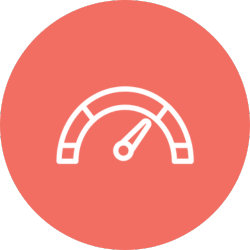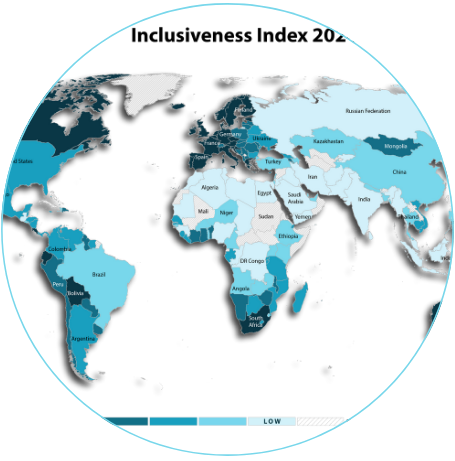The Othering and Belonging Institute’s “Inclusiveness Index” examines the degree of inclusivity experienced by marginalized groups across the globe and within the United States. Our annual index ranks states and countries in absolute and relative terms using a variety of indicators. Our instrument is unique in striving to gauge inclusivity on its own terms rather than as part of a more general assessment of group well-being, wealth or economic conditions. We feel it is important to measure inclusiveness distinctly from other measures or indices of well-being.
We operationalize this definition of “inclusivity” by focusing primarily on the degree of institutional inclusion and protections extended to vulnerable groups across salient social cleavages, such as gender, race, ethnicity, religion, sexual orientation, and (dis)ability. Our index focuses on social groups rather than individuals, emphasizing the kind of marginality that results from social identities and group membership.
About the Index

Background
A summary of the Inclusiveness Index, what it measures, why it matters, and how it is presented

Indicators
A conceptual summary of indicators used to calculate the index and their sources

Methodology
A quantitative summary of the methodology used to create and validate the index
Explore the Data
The results of our research are available in several formats, including an interactive table and U.S. or world map projections.

Inclusiveness Index
View the inclusiveness index data
in an interactive table format

Inclusiveness Maps
View the inclusiveness index
data projected onto U.S. and world maps
Overview of Results
Every year we share out a press release in the media. These press releases describe an overview of results for the year and provides a link to the index table. Select a year below to read the press release for that year and learn what the key takeaways were.

